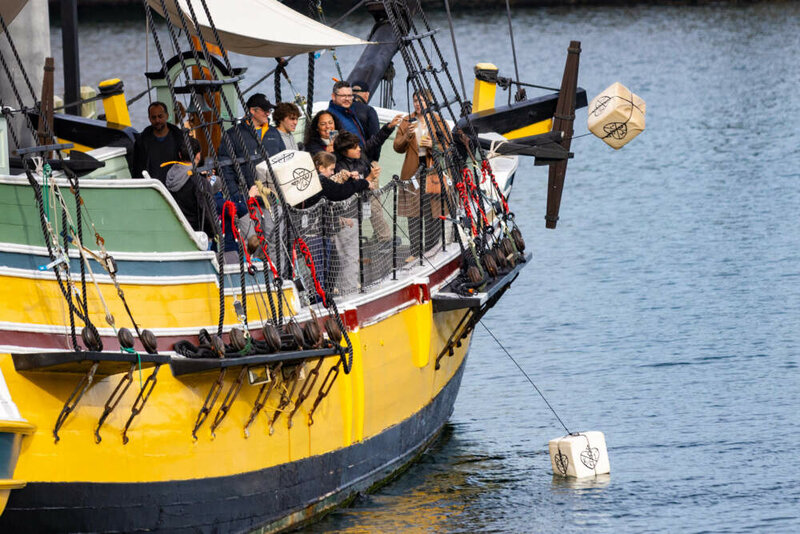On a chilly December night, 250 years ago, a group of men destroyed a lot of tea.
The Boston Tea Party was an act of civil disobedience. The caper, led by disguised men on the ships and silently cheered on by thousands on shore, helped catalyze the American Revolution.
It's also a story historians say is filled with myth and a little mystery.
“The Boston Tea Party has been one of the most sensationalized moments in our nation's history,” said Evan O’Brien, the creative manager of the Boston Tea Party Ships & Museum.
The misconceptions vary from the “mildly inaccurate to just out of control,” he said.
For starters, the Boston Tea Party had very little to do with tax hikes. Despite the name, it wasn’t a party, much less a drunken party. And, party or not, the protest appalled some colonial leaders like George Washington and Benjamin Franklin.
But others had only praise.
“This is the most magnificent movement of all,” John Adams wrote in his diary the day after the tea was dumped overboard. “I can't but consider it as an epocha in history.”
There’s no denying the whole affair set the colonies on a path that led directly to the Revolutionary War and the birth of a new country.



 Boston
Boston American History
American History


